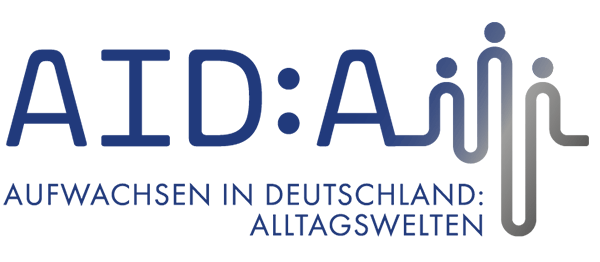The integrated DJI survey “Aufwachsen in Deutschland: Alltagswelten (AID:A)” (Growing up in Germany), commissioned by the German Youth Institute (DJI), records social change for childhood, youth and family in replicative representative surveys. As a panel study, AID:A also examines development processes in the course of life, such as transitions on the path to adulthood. It is also about the factors and constellations that shape and influence the course of life. At the household or family level, the panel observes changes in household composition over time, such as family expansions. But the analysis of separations or household members moving out is also made possible by tracking panel members and interviewing their new households. Parents of minors will continue to be interviewed in the new household.
The study has been conducted at regular intervals since 2009, and the current survey wave has been running since early summer 2023. In the 2019 survey, children, teenagers, young adults and parents of minors were interviewed in over 6,000 households. Online surveys were conducted in the panel households in 2020 and 2021.
Survey 2023
The complex computer-assisted survey instrument allows the use of dependent interviewing for the panel sample and a very differentiated control of the integrated questionnaire according to age groups. The study is computer-assisted using a mix of methods; the household interview and the CAPI child interview (5-8 years) are conducted in interviewer-administered mode, while all other interviews can be conducted in CAPI, CATI, CASI or CAWI mode.
The basic population of the study is the resident population in private households in Germany between the ages of 0 and 32. The AID:A 2023 sample to be surveyed is made up of a panel sample of households and individuals from the AID:A 2019 survey and a newly drawn population registration refreshment sample. In the households of the persons drawn, all other persons between the ages of 0 and 32 are included in the survey as target persons. Target persons are interviewed themselves from the age of 5. All parents of target persons under the age of 18 in the household are interviewed about themselves and also about all minors in the household. The interviewees are determined within the framework of a household interview.

